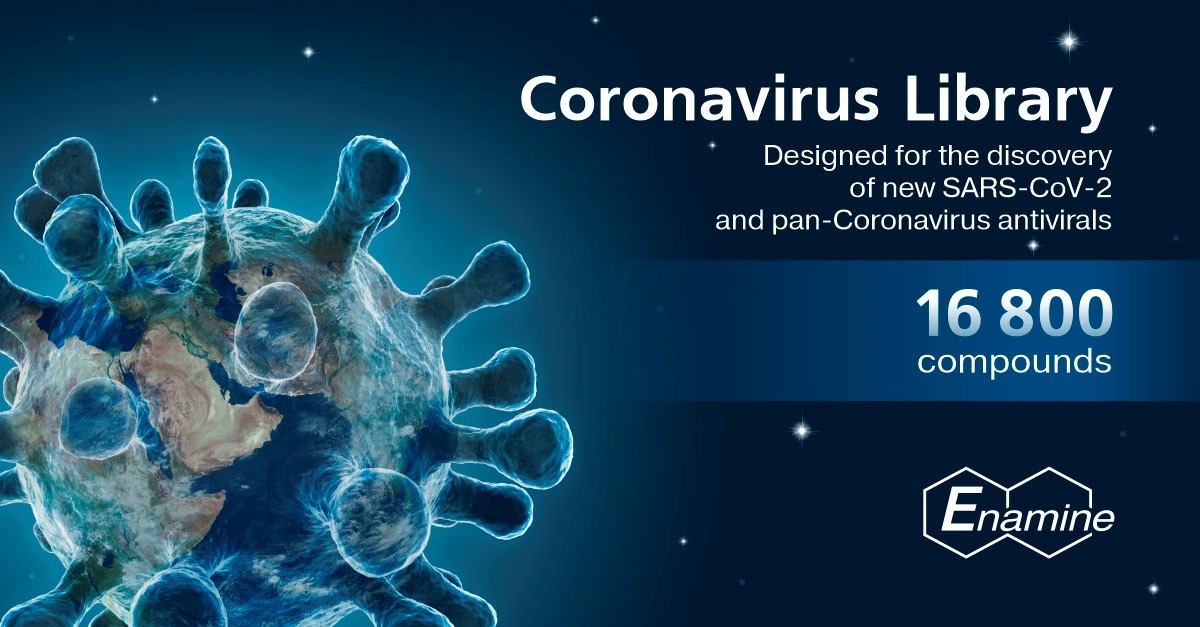
Designed for the discovery of new SARS-CoV-2 and pan-Coronavirus antivirals.
In spite of the previously known coronavirus outbreaks in 2002 and 2003 followed later in 2012 with MERS-CoV spread in middle-Asia, no effective treatment has been developed. Shortage of financial support and attention in R&D area resulted in a desperate outcome. The world appeared to be largely unprepared for the new outbreak, caused by SARS-CoV-2, which began in December 2019 and quickly grew into a global pandemic. The past research on SARS/MERS-CoV family of viruses has not produce any lead series which can be quickly progressed into marketed drugs.
An unprecedented biotech race is now on to design cures for COVID-19 and to curb the crisis until a reliable vaccine is available and widely adopted. While most of the efforts are focused on drug repurposing strategies, de-novo drug discovery is essential for achieving sufficient specificity and efficacy towards the new SARS-CoV-2 virus.
To meet the urgent need for potent new antivirals against COVID-19, Enamine has designed and preplated for quick delivery a small-molecule compound library focusing on SARS-CoV most promising targets. This library incarnates Enamine’s rich experience in design and synthesis of antiviral compounds. We take an active part in the global open science initiative COVID Moonshot project, providing synthesis, ADME-Tox profiling, medicinal chemistry and logistic services.
The Coronavirus Library consists of 7 sublibraries which can be also acquired separately.
To design our library we carefully collected all available structural information of most promising SARS-CoV protein targets. The protein structures were scrutinized and docking models were created. The docking models were validated by short MD simulations and verified then by ability to form complexes with reported active molecules. We have focused on the following 5 targets and NSP, reported to be most important for virus transmission and essential for viral replication:
For cysteine and serine proteases (Mpro and TMPRSS2) covalent docking has been carried out to identify promising covalent binders, which can elongate inhibition action. The databases of screening compounds were preliminary filtered to contain only compounds with specific warheads that are selective to each amino acid.